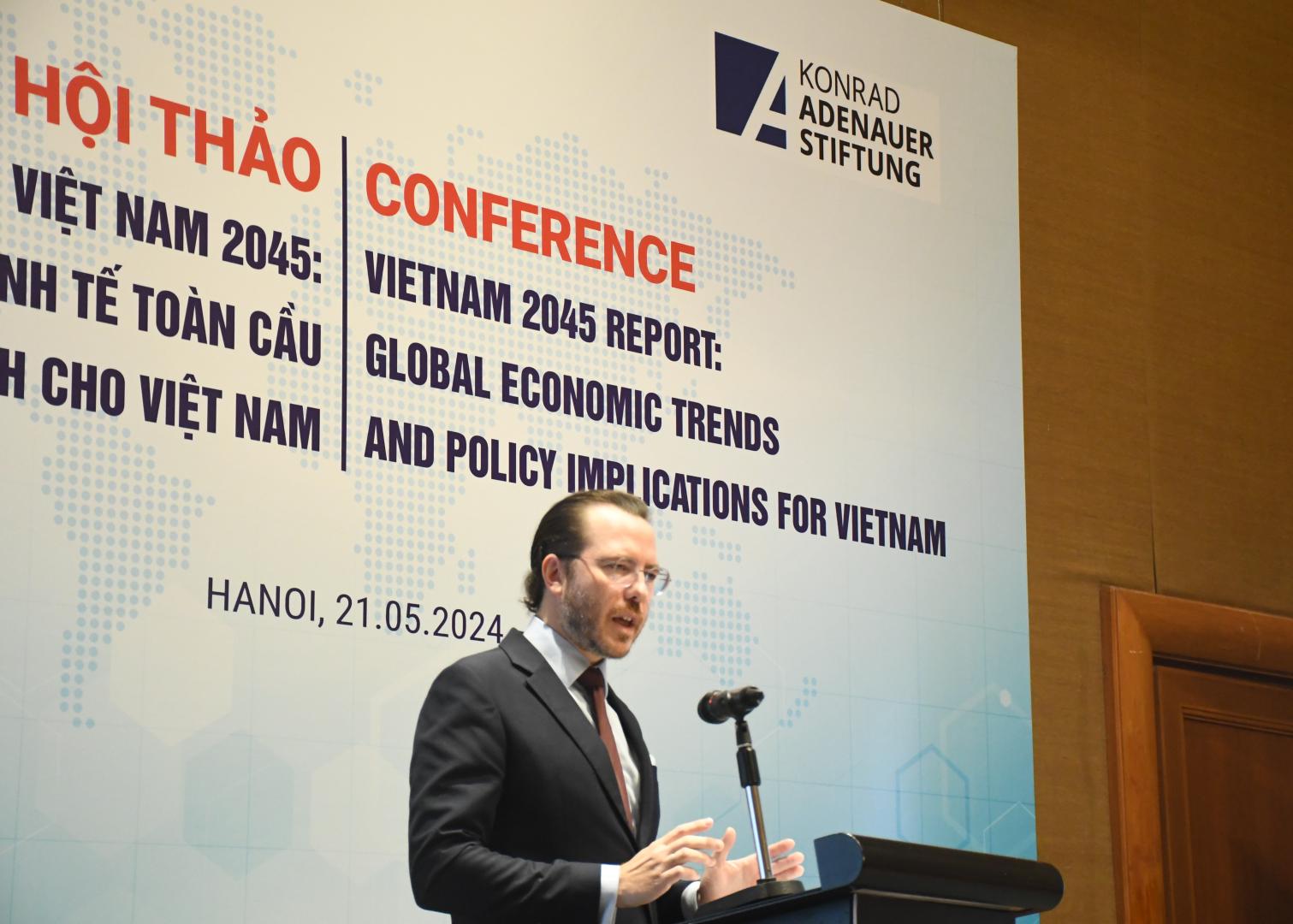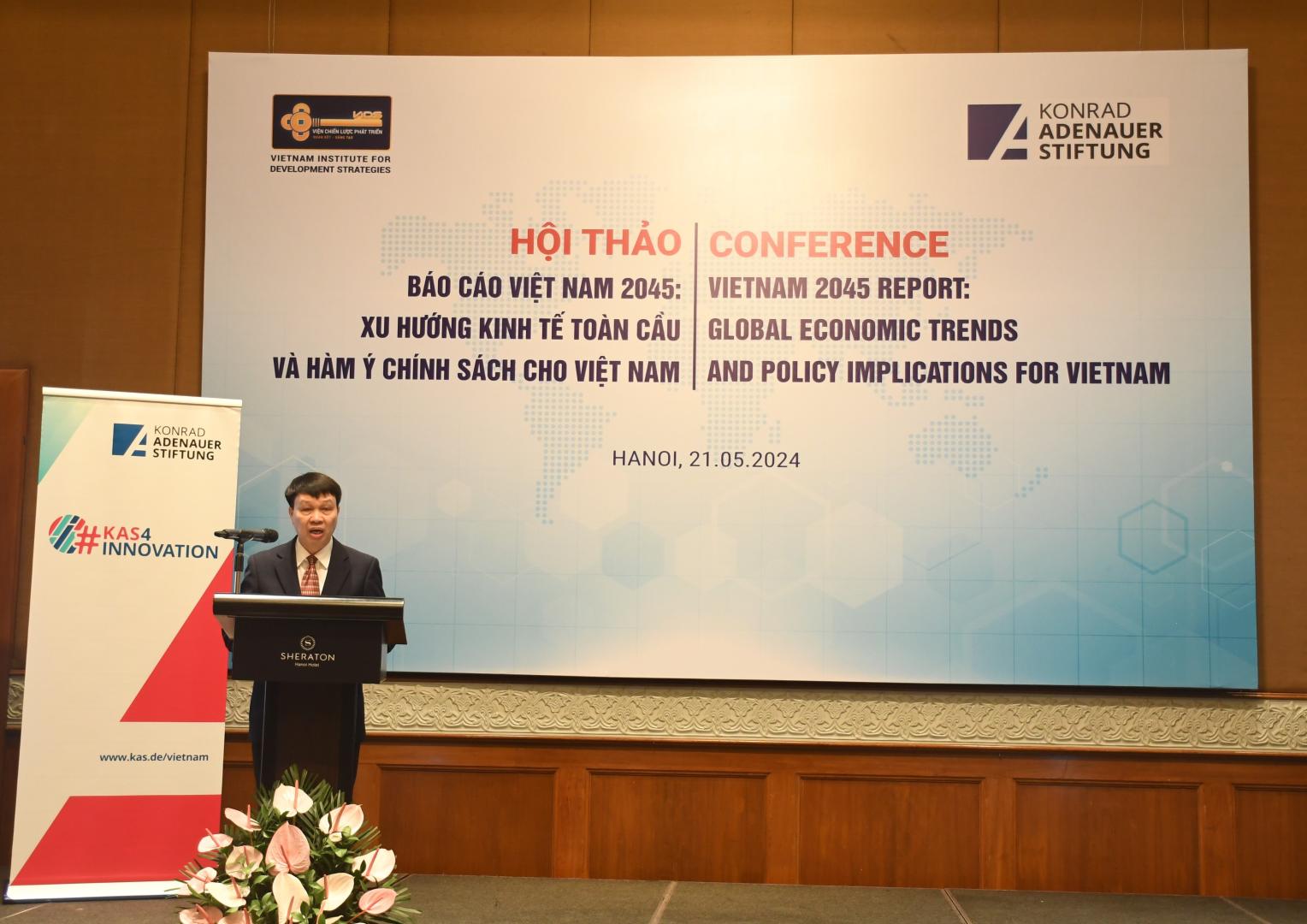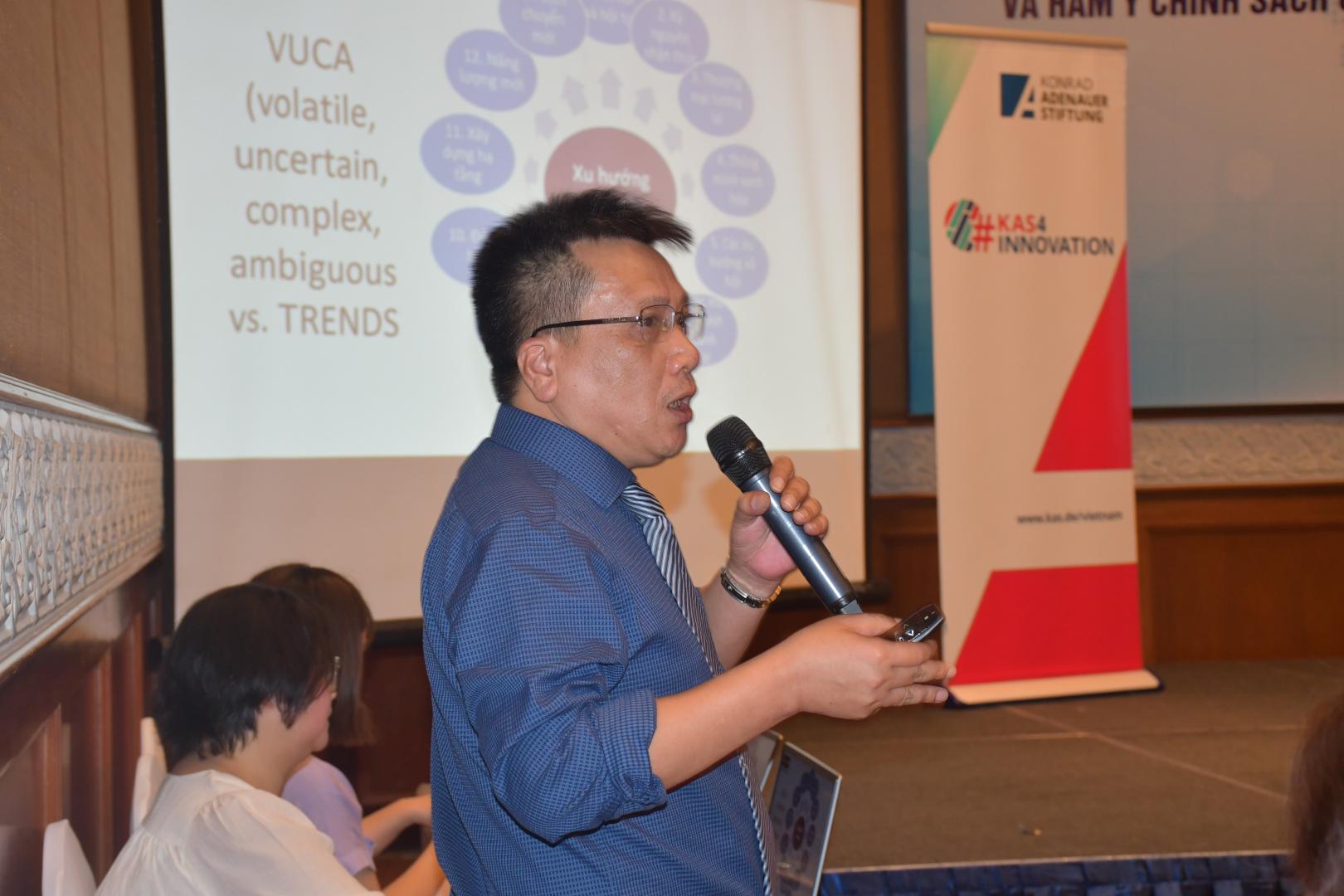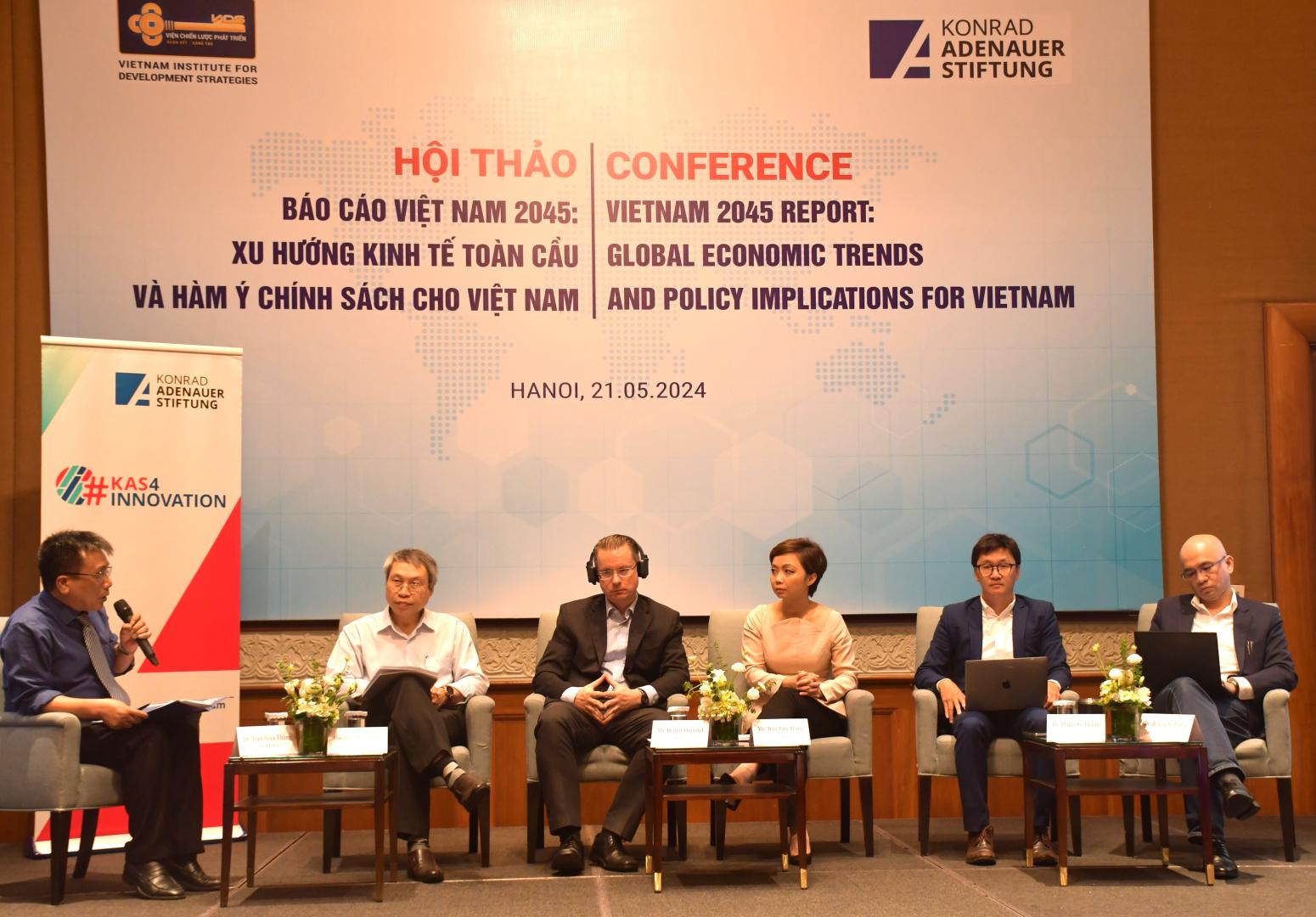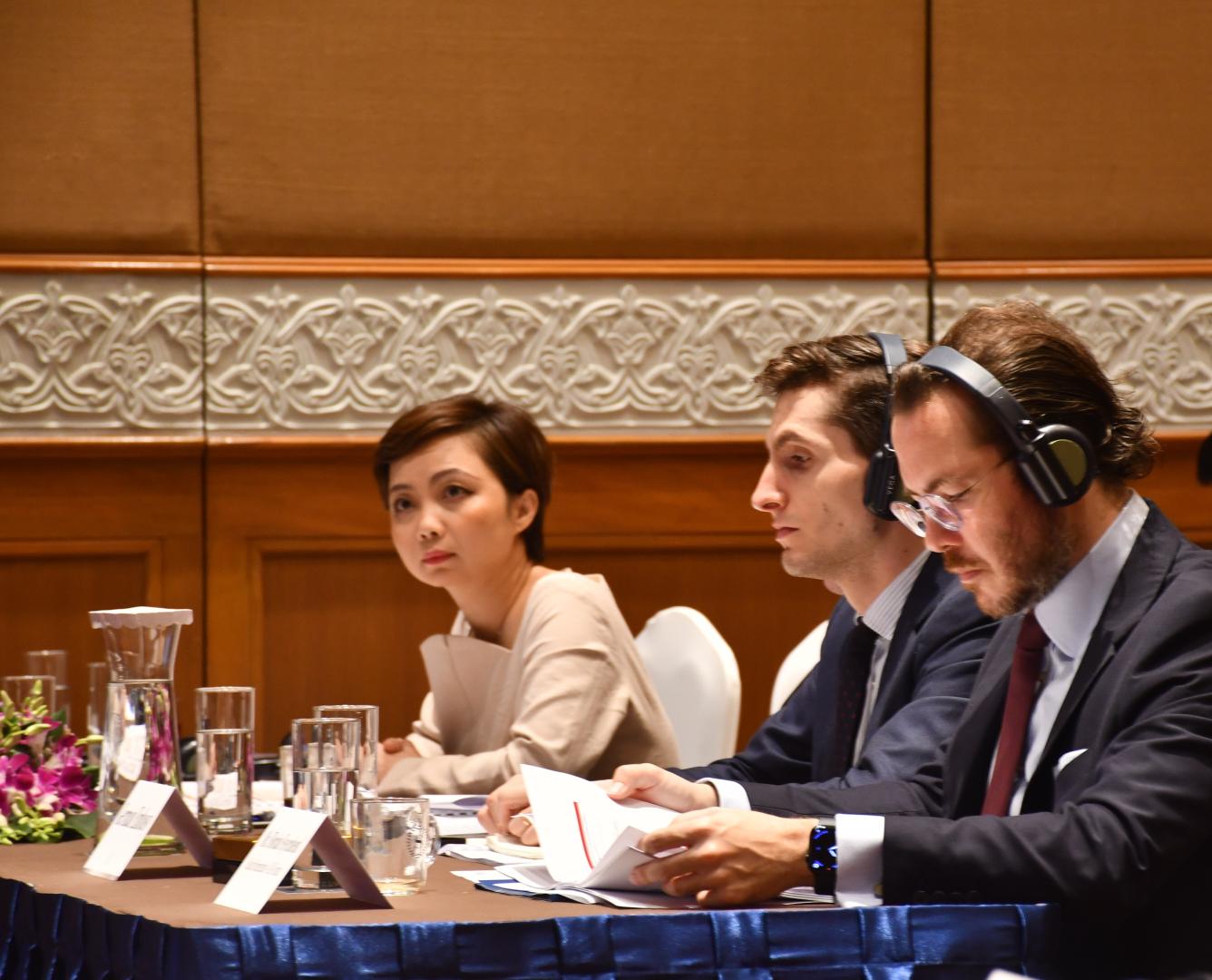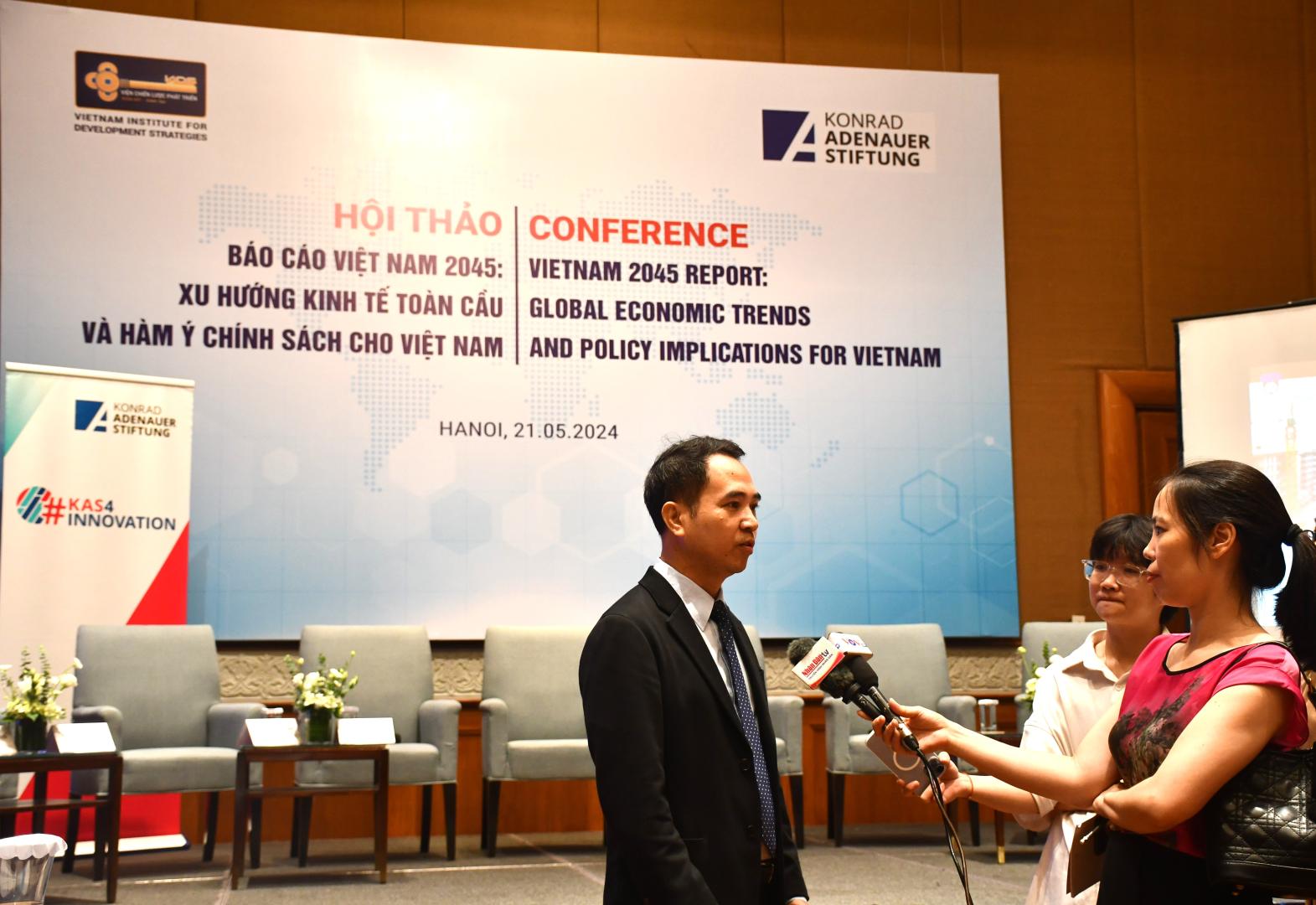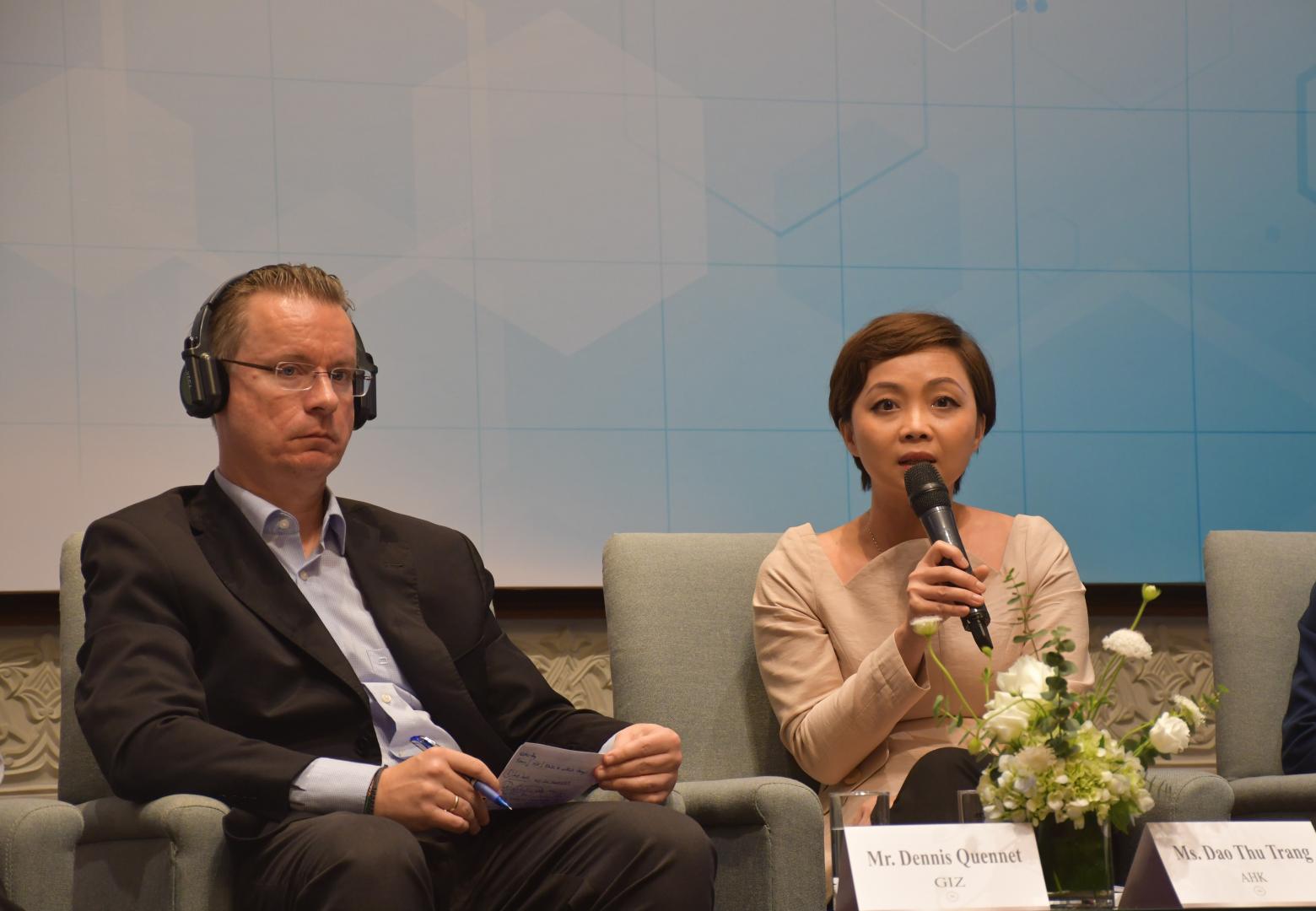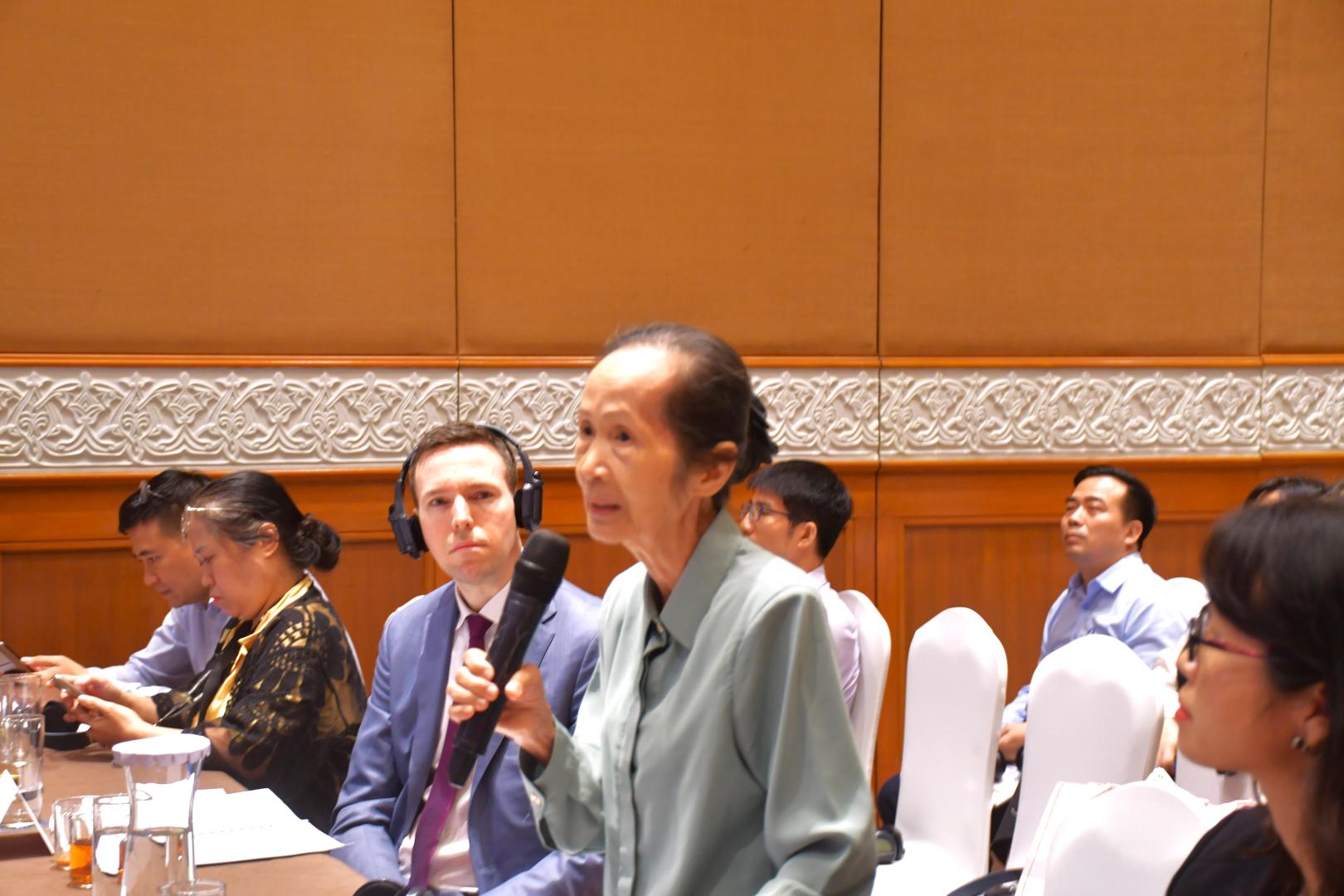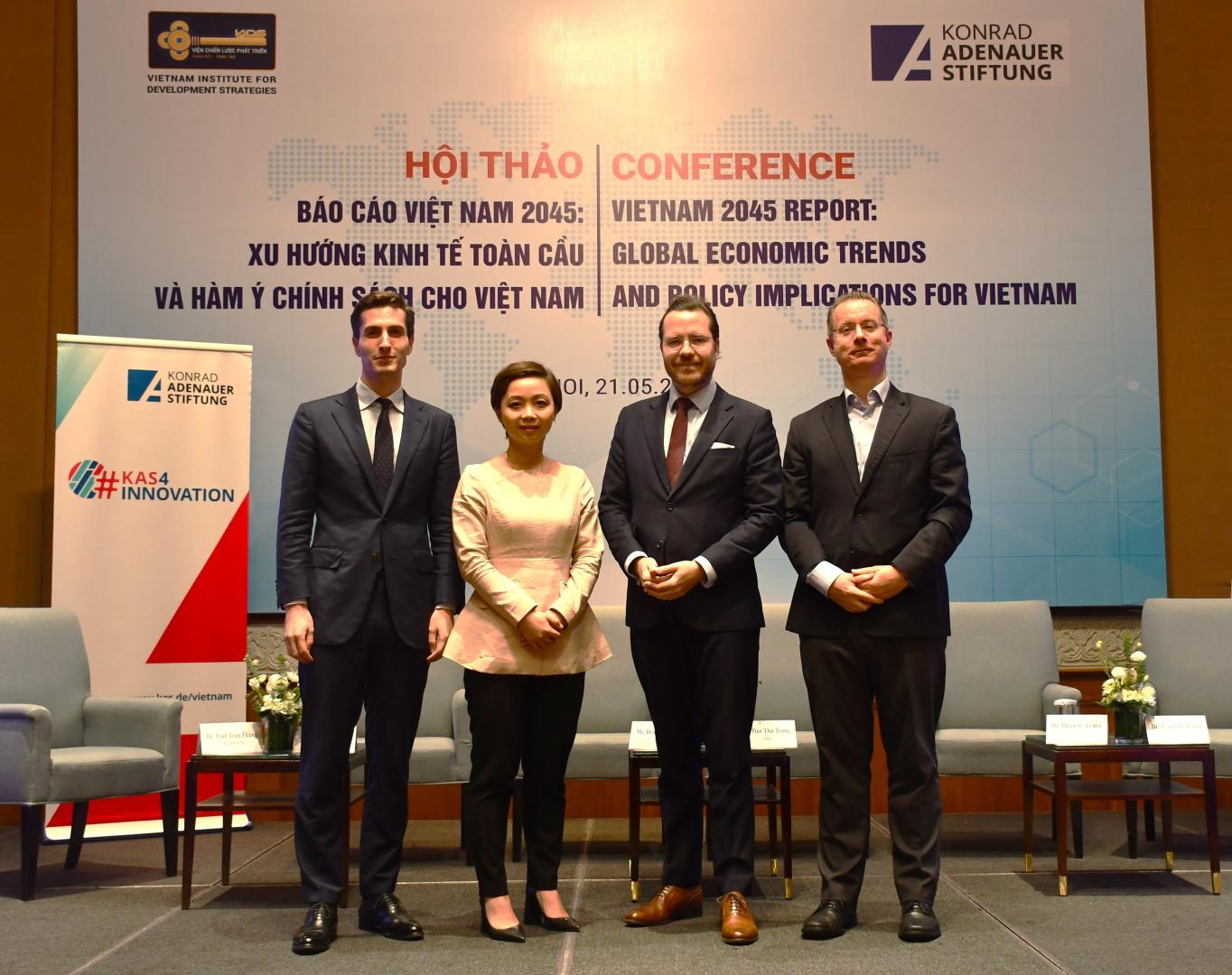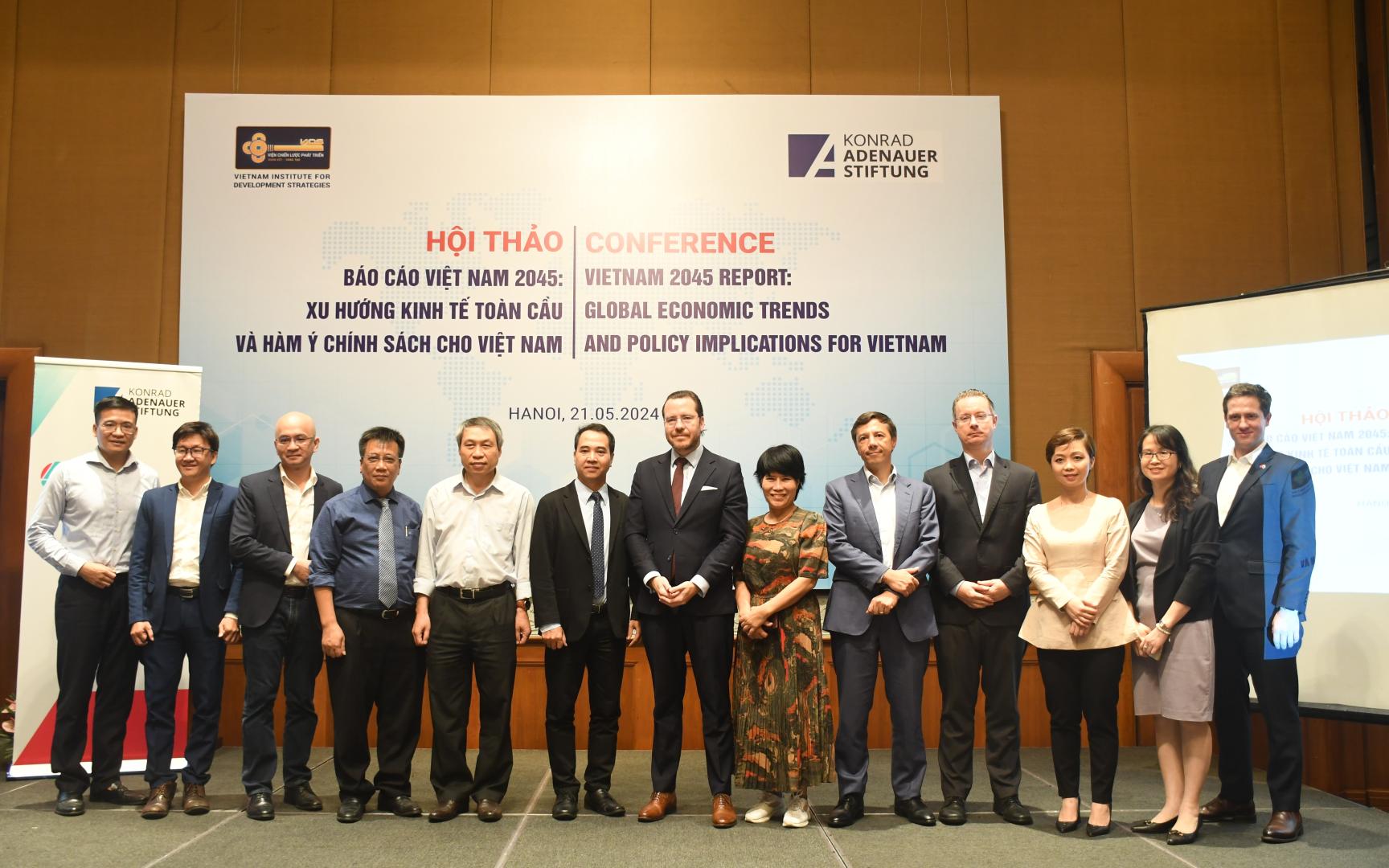The conference, successfully organized by Konrad-Adenauer-Stiftung Vietnam in collaboration with the Vietnam Institute for Development Strategies (VIDS), served as a pivotal platform for gathering input for the Vietnam 2045 Report. This report focuses on up-to-date development strategies. Addressing the event, Mr. Tran Hong Quang, President of VIDS, emphasized that Vietnam must promptly devise appropriate strategies to address international complexities and internal contextual changes. Furthermore, some of the goals outlined in the 2035 report, titled “Toward Prosperity, Creativity, Equity, and Democracy” remain unmet. Therefore, the forthcoming 2045 report will play a crucial role in preparing documents for submission at the next Vietnam Communist Party Congress in 2026. Mr. Florian Feyerabend, Resident Representative of Konrad-Adenauer-Stiftung Vietnam, echoed this perspective, emphasizing that the 2045 goals require audacity, innovation, and strategic vision. Additionally, he shared some key points about risks and opportunities for the German economy in the years ahead. Despite geopolitical challenges, Germany recognizes the potential presented by the global trend toward clean energy. This trend offers significant growth opportunities and positions German companies as leaders in sustainability.
At the conference, representatives from German organizations participated as commentators. Mr. Dennis Quennet, Program Director for Sustainable Economic Development at GIZ, and Ms. Dao Thu Trang, Management Board Member and Deputy General Director at AHK Vietnam, shared insights from their international experiences. They highlighted the bottlenecks and long-term challenges that Vietnam faces. Additionally, they emphasized that sustainable trade is not only relevant in EU-Vietnam relations but also globally. It represents a significant trend that will shape future trade patterns. Vietnam holds a crucial position as the EU’s largest partner in the ASEAN region. Remarkably, every third EU enterprise operating in Vietnam is of German origin. Since 2020, the implementation of the EU-Vietnam Free Trade Agreement (EVFTA) framework has been successful. Furthermore, numerous new regulations from Europe align with this framework. Some companies and value chains in Vietnam have already adapted to these regulations, providing a solid foundation for further development, and achieving compliance requirements related to environmental and social standards.
Regarding the geopolitical trends and implications for Vietnam, Mr Tran Chi Trung, Deputy Director of IFPSS, Diplomatic Academy of Vietnam shared the thoughts that geopolitics are likely to become multipolar. The shifting of power dynamics is a significant phenomenon across various sectors. For instance, The Asia and Indo-Pacific region emerge as the focal point and driving force behind global economics and politics. Nevertheless, conventional security concerns and asymmetric challenges (climate change, pandemics, migration…) significantly impact Vietnam’s security and socio-economic stability.
The conference concluded with a productive discussion. We firmly believe that the insights and recommendations shared during this event will play a pivotal role in shaping the Vietnam Report 2045 by VIDS. This report transcends mere documentation; it embodies the collective ambition that resonates across various sectors. Konrad-Adenauer-Stiftung takes pride in facilitating connections between individuals and ideas. We provide a platform for discussions that promote understanding and mutual benefit among the EU, Germany, Vietnam, and ASEAN.



